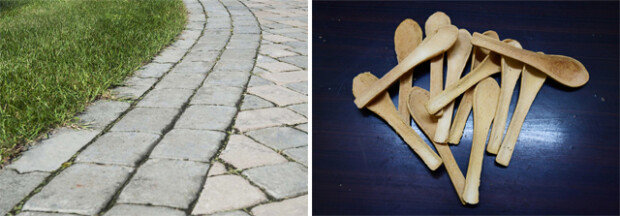Plastic waste turns into eco-friendly paving stones
Plastic waste turns into eco-friendly paving stones
Posted June. 16, 2018 09:14,
Updated June. 16, 2018 09:42

“Plastics are light, transformable and waterproof. They are neither easily corroded nor conductive. They have a great potential as ideal materials in architecture, nevertheless, they are underestimated. Why is it?” said one panelist in a televised debate, which was held ahead of the “Zero Mika” campaign. Back in 2016, the Moroccan government decided to launch the “Zero Mika” initiative in a bid to reduce the usage of plastic bags. It was at that moment a 20-year-old college student named Saif Eddine Laalej came up with a brilliant idea when he was watching this TV show. Laalej, who studied business management at university, began thinking about starting his own company that would utilize plastic waste.
For this year’s Impact Journalism Day, dozens of world newspapers are joined to spread a growing number of initiatives implemented around the world. Among many, Moroccan daily newspaper L’Economiste ran a story about Zelij Invet, a startup company founded by Laalej and his friend in July 2017.
Inspired by the traditional Moroccan tiles Zelij characterized by vivid colors and geometric designs, the young founder decided to make eco-friendly paving stones that have aesthetic features of Zelij. The main ingredient was plastic waste, except for cement and sand, he collected every possible plastic waste such as plastic bottles, plastic bottle caps and plastic containers.
The biggest hurdle was how to address inflammability. Inflammable items cannot be commercialized. Three months of hard work and devoted experiment at his father’s garage, he finally discovered the optimum formula with reduced inflammability and increased durability. Paveco, Zelij Invent’s paving material, is made up of 80 percent of plastic and 20 percent of cement and sand and is as hard as concrete while its price is only a third those of paving materials currently available on the market.
The company is making only prototypes at present, but once the business gets on track, it is expected to recycle as much as 2,520 tons of plastics per month.
chan2@donga.com
Headline News
- Med professors announce intention to leave hospitals starting Thursday
- Bridge honoring Sgt. Moon Jae-sik unveiled in Pennsylvania
- Chief of Staff Chung tells presidential secretaries to stay away from politics
- US FTC bans noncompete agreements
- N. Korea launches cyberattacks on S. Korea's defense companies







